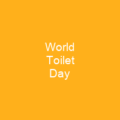
The Evolution of Sustainable Development
From its early roots in the 1960s with Kenneth E. Boulding’s essay “The Economics of the Coming Spaceship Earth,” to the landmark Brundtland Report, sustainable development has grown from a niche concept into a widely recognized framework for global governance.
The Rio Process and Beyond
Key milestones include the Rio Process in 1992, which placed sustainable development on the international agenda. This led to the creation of the Sustainable Development Goals (SDGs) in 2015, with their 17 targets and indicators aimed at achieving a more balanced world.
The Three Pillars of Sustainability
Sustainable development is often described as having three main pillars: environment, economy, and society. Each plays a crucial role in ensuring that our actions today do not undermine the well-being of future generations.
Key Capacities for Sustainable Development
To achieve these goals, six interdependent capacities are deemed necessary: measuring progress, promoting equity, adapting to shocks, transforming systems, linking knowledge, and devising governance arrangements. These capacities include using water sustainably, renewable energy, and sustainable material supplies.
The Challenges of Sustainable Development
Despite its importance, the concept of sustainable development faces several challenges. It is often seen as an oxymoron, open-ended, and ambiguous. Critics argue that it lacks concrete goals and operational details, making it difficult to implement effectively.
The Tragedy of the Commons
Garrett Hardin’s 1968 article “The Tragedy of the Commons” highlights one such challenge: how shared resources can be overused if not managed properly. This concept is crucial in understanding why sustainable development requires careful management and governance.
The Role of Education for Sustainable Development
Education plays a vital role in promoting sustainable development. The United Nations defines education for sustainable development (ESD) as practices that encourage changes in knowledge, skills, values, and attitudes to enable a more sustainable and just society.
Agenda 21 and Beyond
The first international document to identify education as an essential tool for achieving sustainable development was Agenda 21. It emphasized the importance of public participation in decision-making processes related to sustainability.
SDG 12: Responsible Consumption and Production
Education for sustainable development is a component of measurement in SDG 12, which aims to ensure that people everywhere have the relevant information and awareness for sustainable development and lifestyles in harmony with nature. Target 12.8 specifically calls for this by 2030.
The Future of Sustainable Development
As we move forward, the concept of sustainable development will continue to evolve. It requires a holistic approach that addresses environmental, economic, and social dimensions simultaneously. The challenges are real, but so is the potential for positive change.
Can we truly achieve sustainable development? The answer lies in our collective actions today. By embracing education for sustainable development and working towards the SDGs, we can create a more equitable and environmentally conscious world for future generations.
You want to know more about Sustainable development?
This page is based on the article Sustainable development published in Wikipedia (retrieved on November 24, 2024) and was automatically summarized using artificial intelligence.






